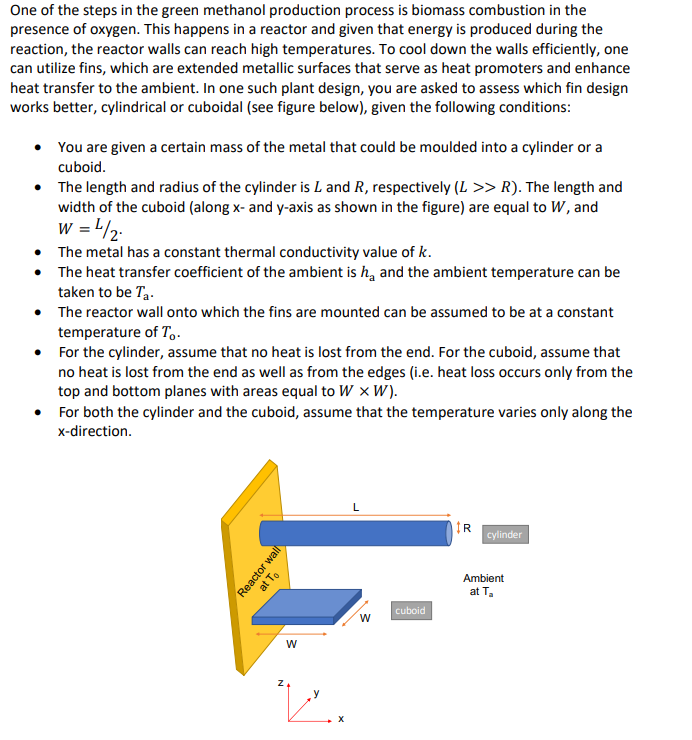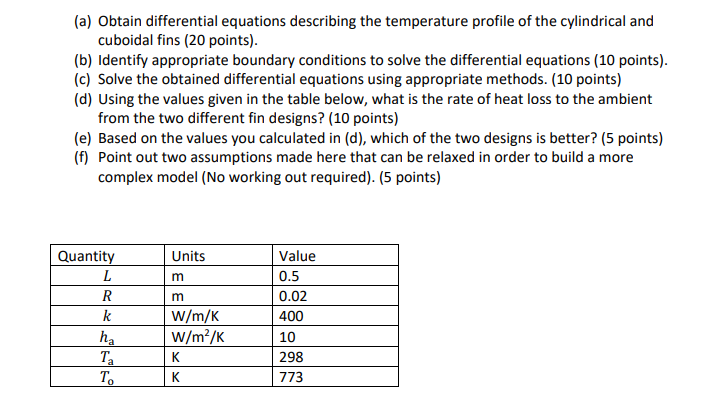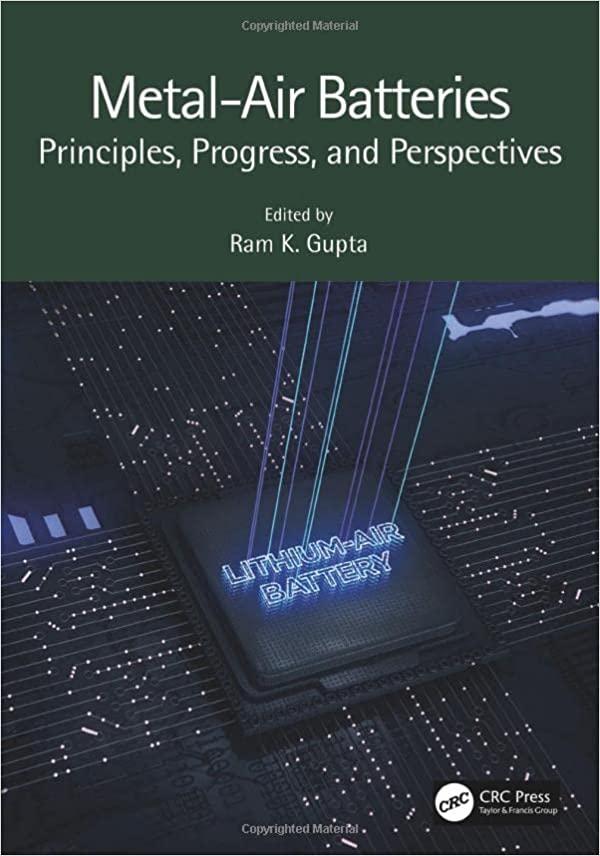

One of the steps in the green methanol production process is biomass combustion in the presence of oxygen. This happens in a reactor and given that energy is produced during the reaction, the reactor walls can reach high temperatures. To cool down the walls efficiently, one can utilize fins, which are extended metallic surfaces that serve as heat promoters and enhance heat transfer to the ambient. In one such plant design, you are asked to assess which fin design works better, cylindrical or cuboidal (see figure below), given the following conditions: - You are given a certain mass of the metal that could be moulded into a cylinder or a cuboid. - The length and radius of the cylinder is L and R, respectively (L>R). The length and width of the cuboid (along x - and y-axis as shown in the figure) are equal to W, and W=L/2 - The metal has a constant thermal conductivity value of k. - The heat transfer coefficient of the ambient is ha and the ambient temperature can be taken to be Ta. - The reactor wall onto which the fins are mounted can be assumed to be at a constant temperature of T0. - For the cylinder, assume that no heat is lost from the end. For the cuboid, assume that no heat is lost from the end as well as from the edges (i.e. heat loss occurs only from the top and bottom planes with areas equal to WW ). - For both the cylinder and the cuboid, assume that the temperature varies only along the (a) Obtain differential equations describing the temperature profile of the cylindrical and cuboidal fins ( 20 points). (b) Identify appropriate boundary conditions to solve the differential equations (10 points). (c) Solve the obtained differential equations using appropriate methods. (10 points) (d) Using the values given in the table below, what is the rate of heat loss to the ambient from the two different fin designs? (10 points) (e) Based on the values you calculated in (d), which of the two designs is better? (5 points) (f) Point out two assumptions made here that can be relaxed in order to build a more complex model (No working out required). (5 points)








